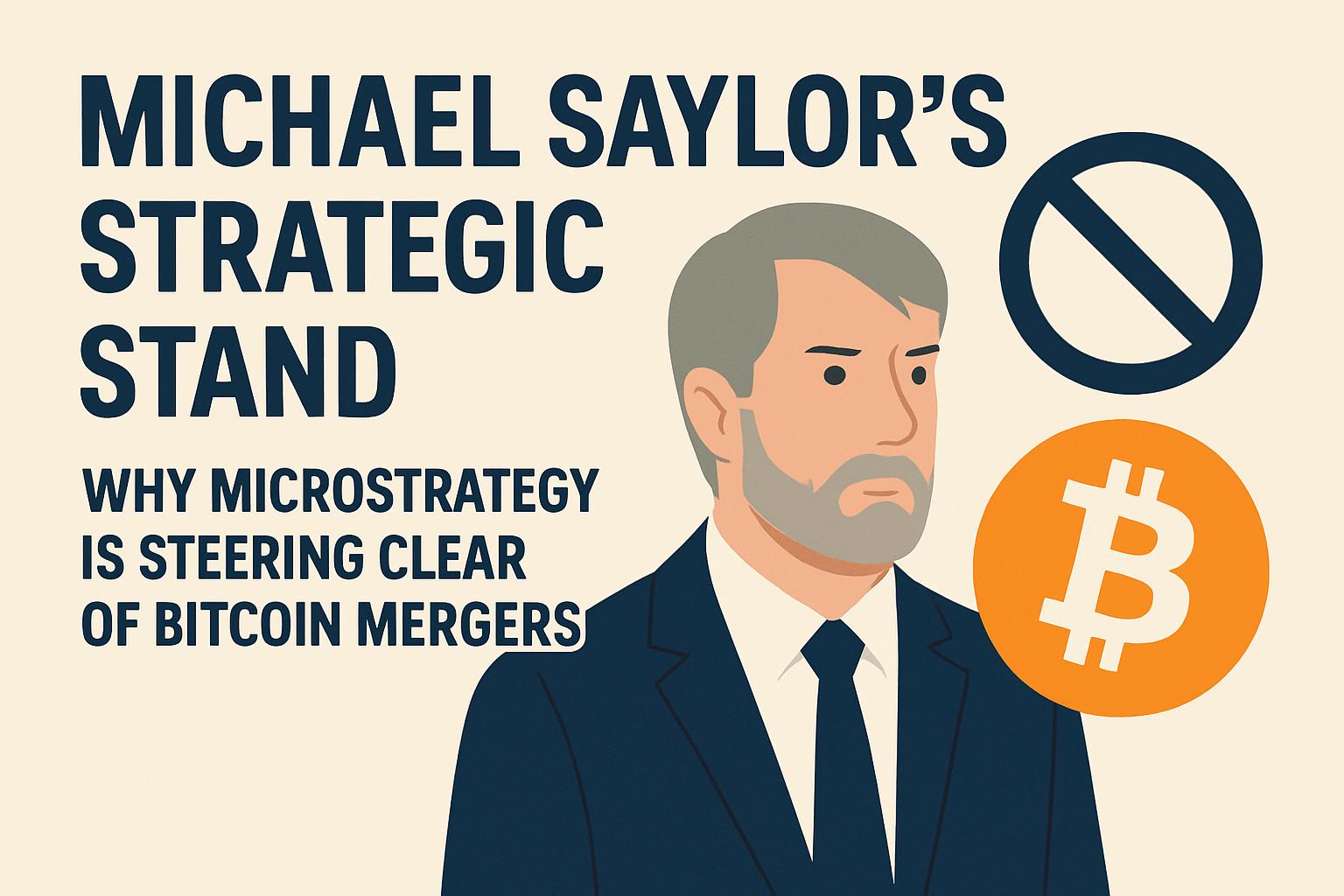In the bustling arena of Bitcoin treasury firms, competition is heating up, leading some analysts to predict a wave of mergers and acquisitions (M&As). Yet, Michael Saylor, Chairman of MicroStrategy, is decidedly uninterested in such trends. During the latest quarterly earnings call, Saylor clearly stated that the company has no current plans to engage in any M&A activities, pointing to the inherent risks and uncertainties involved.
The Perils of Mergers: A Potential Idea Gone Bad
During the third-quarter earnings meeting, Saylor candidly communicated that MicroStrategy has no M&A plans on the table, even if such moves might seem financially advantageous. He explained, “Mergers often come with a level of uncertainty and can take six to nine months, or even a year, to finalize. What appears to be a promising idea today might not hold the same potential in half a year.” This cautious approach suggests that while tempting, the logistical and strategic complications can outweigh potential benefits.
Bitcoin Companies and the Merger Mania
Meanwhile, as the Bitcoin treasury sector matures, the market is seeing increased activity. Notably, in September, Strive became the first to initiate a merger, acquiring rival Semler Scientific via an all-stock deal. This consolidation allows them to hold a significant 11,006 Bitcoins, positioning themselves just below Tesla in the global rankings of Bitcoin-holding public companies. In comparison, MicroStrategy confidently holds 640,808 Bitcoins—more than any other publicly listed company worldwide.
Leaving the Door Ajar for Future Opportunities
While Saylor emphasized that mergers are currently off the table, he prudently left room for strategic flexibility, asserting, “We never say never.” For now, the company focuses on selling digital credits, enhancing its balance sheet, purchasing Bitcoin, and ensuring clear communication with creditors and shareholders.
The Challenges of Acquiring Software and Bitcoin Firms
Add to this sentiment the perspective of Phong Le, CEO of MicroStrategy, who highlighted the complexities involved in software company acquisitions. He noted that beneath the surface of any deal, unforeseen challenges loom, especially concerning Bitcoin treasury firms, where unknown risks are abundant.
The Beauty of a Simple Bitcoin Strategy
MicroStrategy’s straightforward approach to Bitcoin purchasing has proven advantageous in the eyes of both investors and analysts. Saylor articulates that this transparent strategy allows for easier evaluation of financial health and contributes positively to the company’s market narrative. “Our focus on efficient, transparent digital transactions and a clear business model makes us more appealing to investors,” Saylor remarked.
A Controversial Credit Rating by S&P
Despite MicroStrategy’s substantial Bitcoin holdings, S&P Global Ratings recently awarded the company a ‘B-‘ rating, classifying it as high risk, albeit with a stable outlook. Phong Le underscored that the valuation does not account for Bitcoin holdings positively, instead excluding it from equity assessments. “The redefinition of Bitcoin as capital assets could potentially enhance our credit rating,” he suggested.
Ultimately, while MicroStrategy isn’t closing the door on future M&A activities, its current priority lies in fortifying its core business and expanding its Bitcoin portfolio. As more companies strive to make their mark within the Bitcoin industry, only time will tell if MicroStrategy’s singular focus will pay off.

![[News] Bitcoin at a Turning Point? 10x Research Signals a Bullish Macro Shift Ahead](https://cryptoexplores.com/wp-content/uploads/2025/06/new20250616.jpg)
![[News] Binance Lists $HOME, the Gas-Free, Bridge-Free All-in-One DeFi App](https://cryptoexplores.com/wp-content/uploads/2025/06/news20250617.jpg)